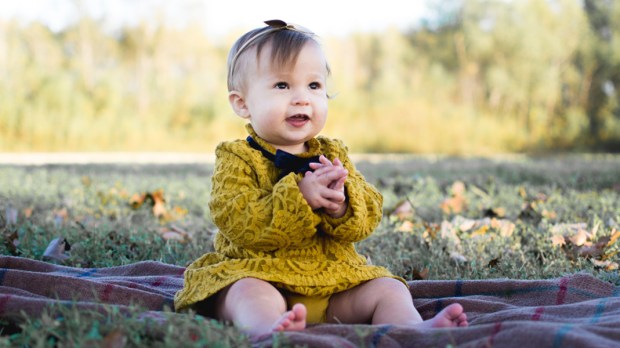Lenten Campaign 2025
This content is free of charge, as are all our articles.
Support us with a donation that is tax-deductible and enable us to continue to reach millions of readers.
Catholics have been naming their children after saints pretty much since sainthood became a thing. Some of these saints have become so popular it’s almost a running joke — every big Catholic family has some version of a Maria, or a Therese, Elizabeth, or Bernadette. But let’s not forget the more recent saints whose names haven’t always had the time to become traditional yet. (And not just Saints, but Blesseds, Venerables, and Servants of God, too.)
If it’s boys’ saint names you’re looking for, we’ve hooked you up with a good selection of those already. If you’re having a girl, here are 16 inspiring and memorable patrons to consider for her:
Faustina
St. Maria Faustina Kowalaska is known to the world as the Apostle of Divine Mercy, a title given her by St. John Paul II himself. A barely literate Polish nun, St. Faustina received revelations and visions, and spoke with Jesus frequently, writing down everything he told her in her diary. “Today I am sending you with My mercy to the people of the whole world,” she reports hearing Jesus tell her. “I do not want to punish aching mankind, but I desire to heal it, pressing it to My Merciful Heart.” It was to her that he first revealed the Divine Mercy Chaplet, promising, “Through this chaplet you will obtain everything, if what you ask for is compatible with My will.” In 2011, the Vatican was petitioned to proclaim her the fourth female Doctor of the Church. If the name Faustina is too unusual for you, but you love the saint herself, go with Helena, the name she was given at birth.
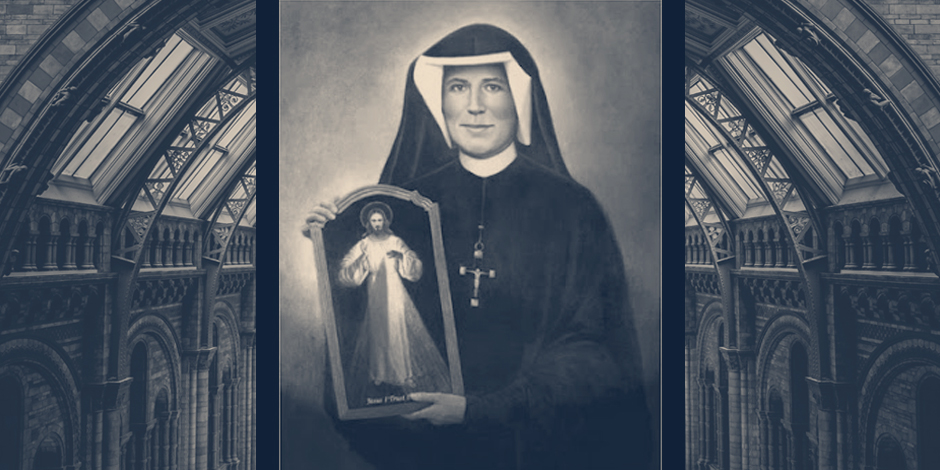
Gemma
St. Gemma Galgani, an Italian mystic and stigmatic, lived largely unknown, and as she was too sick to join a religious order, died a layperson at just 25. She wrote, “I shall be satisfied only when I am a victim — and may it be soon — to make reparation for my innumerable sins and for the sins of all the world,” and her prayer was answered. In addition to the stigmata, she received the marks of the crown of thorns, the lance in Christ’s side, and the bruise from the weight of the Cross on his shoulder. She is known as the Gem of Christ.
Marianne
St. Marianne Cope, born in 1838, was instrumental in the founding of the first two Catholic hospitals in New York, where she was criticized for welcoming and treating alcoholics and other social outcasts. When she was asked to come to the Hawaiian island of Moloka’i, to care for those afflicted with leprosy and the children they were unable to care for, she responded with joy. In the face of an overwhelming amount of suffering, St. Marianne kept up her optimism and good cheer, and focused all her energy on the service of those who needed her, forgetting herself completely.
Dorothy
Servant of God Dorothy Day, co-founder of the Catholic Worker movement, had an especially un-saintly past, which included an abortion, a common-law marriage, and a “flirtation with Communism.” After her conversion, Heather King writes for Magnificat, “she sheltered, fed, and lived with the marginalized and the mentally ill. Her compassion was for others, not herself; for those who are poor not voluntarily but involuntarily: poor in spirit, poor in choices, poor in inner resources.” An ardent pacifist and advocate for social justice, she was known for seeing Jesus in disguise in the faces of the poor people who she helped during the Great Depression and later.
Kateri
The Lilly of the Mohawks, St. Kateri Tekakwitha, is the first recognized Native American saint. Born to Christian parents, she was orphaned at a young age, and half-blinded and scarred by the smallpox that took her parents’ lives. St. Kateri refused marriage, and, against the wishes of her uncle who raised her, was baptized at the age of 19. She lived a life of mortification and persecution for five more years, and at her death, the priest watching over her body was astonished to see the scars disappear, leaving her face as radiant as her soul.
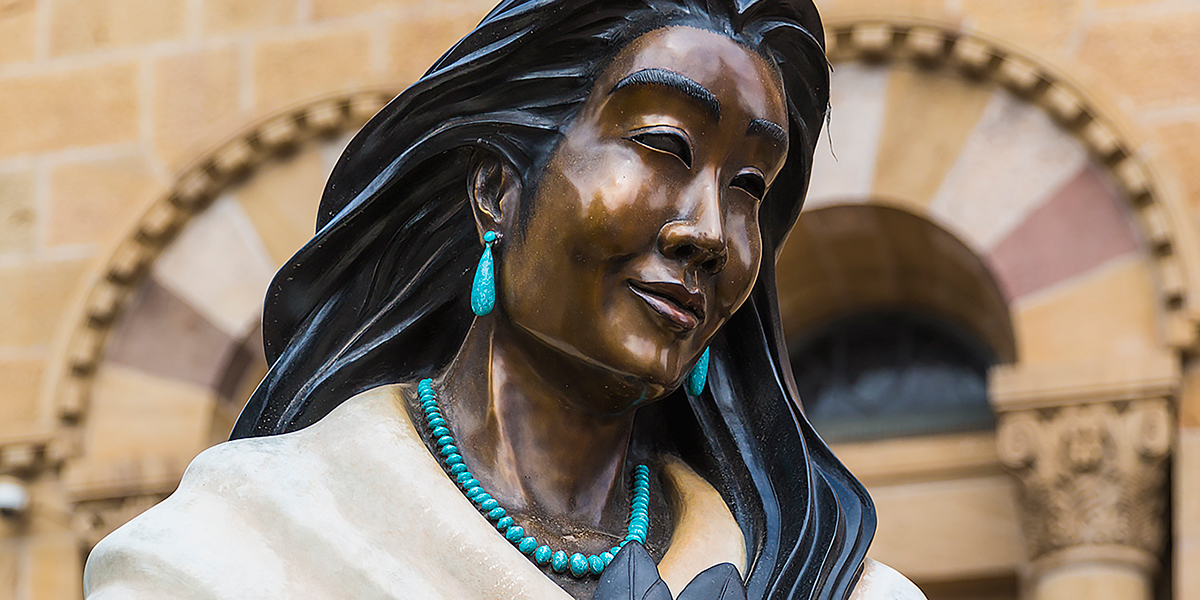
Chiara
Blessed Chiara Luca Badano was a beautiful, outgoing teen, living a normal teenager’s life, when she received a sudden diagnosis of an especially painful form of bone cancer. Chiara had a deep understanding of the value of suffering, to the astonishment of her doctors, one of whom asked her, “The light in your eyes is splendid. Where does it come from?” She replied, “I try to love Jesus as much as I can.” She died in 1990, and was buried, as she requested, in a wedding gown, to remind her parents that she was with Jesus. Her name means “clear light.”
Zelie
You’re sure to know of St. Marie-Azélie “Zélie” Martin’s daughter, St. Therese of Liseiux, but her parents were more recently canonized, becoming the first married couple to be canonized in the same ceremony. Zelie and her husband, Louis, had nine children, four of whom died in infancy. The other five, all girls, went on to become consecrated religious, as their parents had hoped. In his homily on the day of their canonization, Pope Francis praised them for “creating day by day an environment of faith and love which nurtured the vocations of their daughters.”
Edith
St. Edith Stein was a Jewish convert who became a Carmelite nun, inspired by the writings of St. Teresa of Avila. She took the name Teresa Benedicta of the Cross in her honor. A prolific writer and brilliant philosopher, she was known for her writings on the dignity of women, which even influenced St John Paul II. She was taken from her convent in the Netherlands, and died a martyr in the gas chambers at Auschwitz in 1942.
Antonietta
Venerable Antionietta Meo, nicknamed Nennolina, might become the one of the youngest canonized saints who was not a martyr. She died at just six years old, after a year spent fighting cancer, which even resulted in the amputation of her leg. She wrote over a hundred letters to Jesus and Mary that revealed tremendous wisdom side by side with her natural child’s perspective. “Dear crucified Jesus,” goes her last letter, “ I love you and am so fond of you! I want to be with you on Calvary. Dear Jesus, tell God the Father that I love him, too. Dear Jesus, give me your strength for I need it to bear this pain that I offer for sinners.”
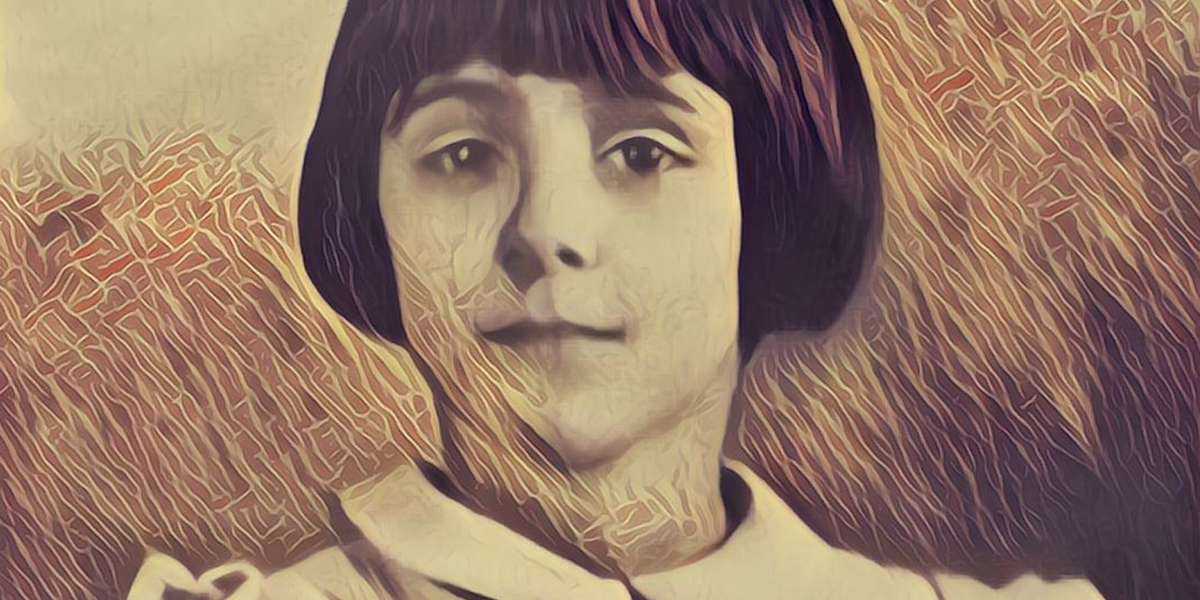
Gianna
St. Gianna Molla, a pediatrician, was pregnant with her fourth child when her doctors found a tumor in her uterus. They offered her an abortion or a hysterectomy, both of which would have saved her life, but at the expense of the child. She refused both, and opted for the removal of the tumor only, which would allow the child to live, though she knew it posed a great risk to her own life. The doctors were unable to save them both, and she died, a week after her daughter was born, in 1962. She is the patron saint of physicians, pregnant mothers, and unborn children.
Cornelia
Venerable Cornelia Augusta Connelly was orphaned young, and married at 22 to an Episcopalian priest. They converted to Catholicism together. Her husband, though, badly wanted to become a Catholic priest, and at the time, it was required that they formally separate in order for him to follow that path. Cornelia entered a convent in Rome, and shortly after, founded the Society of the Holy Child Jesus. Despite persecution from her husband, who eventually left the Church and tried to use the court system to force her to leave the convent, she persevered as the Mother Superior of her order, and remained steadfast in her Catholic faith.
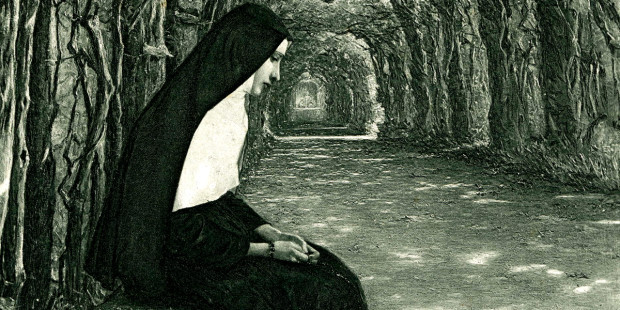
Cora
Servant of God Cora Evans was a housewife and mother, who was brought up a Mormon in Utah. After her conversion, she and her husband moved to California to escape persecution from their former community, and there, Cora began to receive visions, as well as the stigmata, and the gift of bilocation. She died in 1957, promising as St. Therese did to spend her time in Heaven doing good on earth.
Katarina
Servant of God Catherine Doherty was born in 1896 to Russian nobility, but fled as a refugee from the Bolshevik Revolution. She came to North America, and after some years, became a successful and wealthy public speaker. But unable to ignore God’s call to “Sell all you possess, and come, follow Me,” she gave up her comfortable life, and devoted herself to the poor, especially those suffering from the effects of racism and communism, during the Great Depression. At one point, at the request of her bishop, she even infiltrated and spied on the communist party in Toronto, despite the great personal danger it put her in. She eventually founded the Madonna House Apostolate, a community of lay men, women, and priests dedicated to living a hidden life of love, after the example of the Holy Family’s years together at Nazareth.
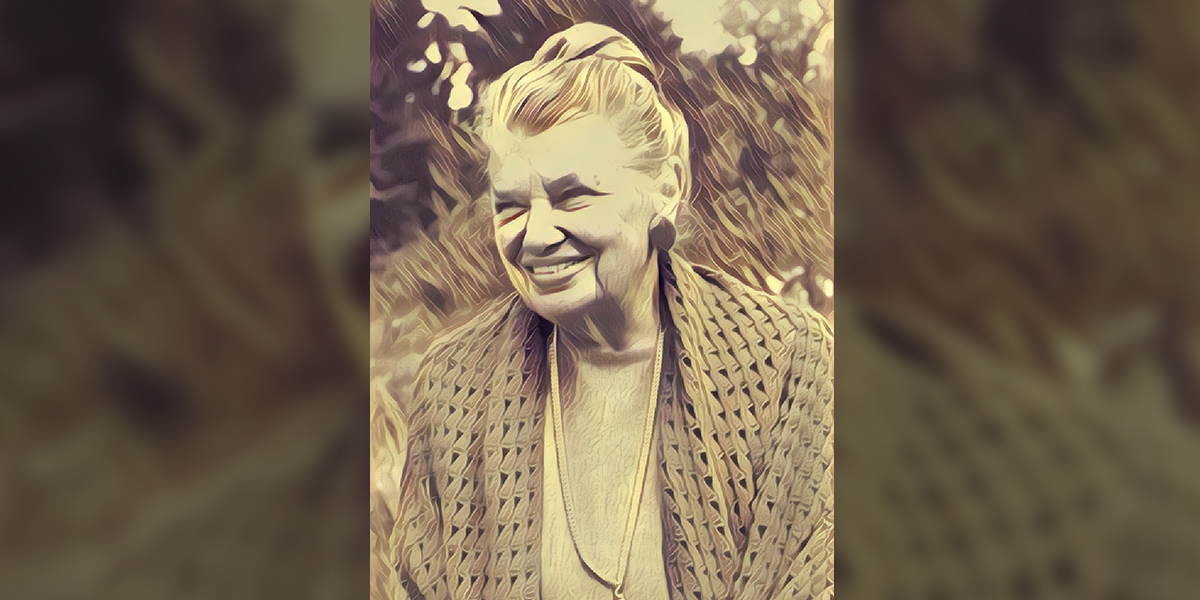
Consolata
Servant of God and mystic Sr. Consolata Betrone is a powerful example that what looks simple from the outside might be an extraordinary and heroic life in the eyes of God. Working as a doorkeeper, a cook, and a nurse inside her convent, she often had conversations with Christ, including one where he famously charged her to pray, simply, “Jesus and Mary, I love You. Save souls.” This simplicity was at the heart of everything she did. She lived obeying Jesus’ exhortation, “You must think only of loving Me! I will think of everything else, even to the smallest details!” Consolata offered herself as a victim soul for the peace of the world, which was embroiled in World War II at the time, dying at the age of 43.
Josephine
St. Josephine Bakhita was born in Sudan, around 1869, and kidnapped and enslaved at just seven years old. In captivity, she was tortured and beaten almost daily, finally being sold to the Italian consul of Sudan. He sent her to look after his daughter, who was being educated by Canossian Sisters in Venice. During that time, Josephine herself converted and was baptized — and when her master came back for her, she refused to go. The Sisters, and the patriarch of Venice himself defended her, and secured her freedom. When later asked, “What would you do, if you were to meet your captors?” Josephine responded, “If I were to meet those who kidnapped me, and even those who tortured me, I would kneel and kiss their hands. For, if these things had not happened, I would not have been a Christian and a religious today.”
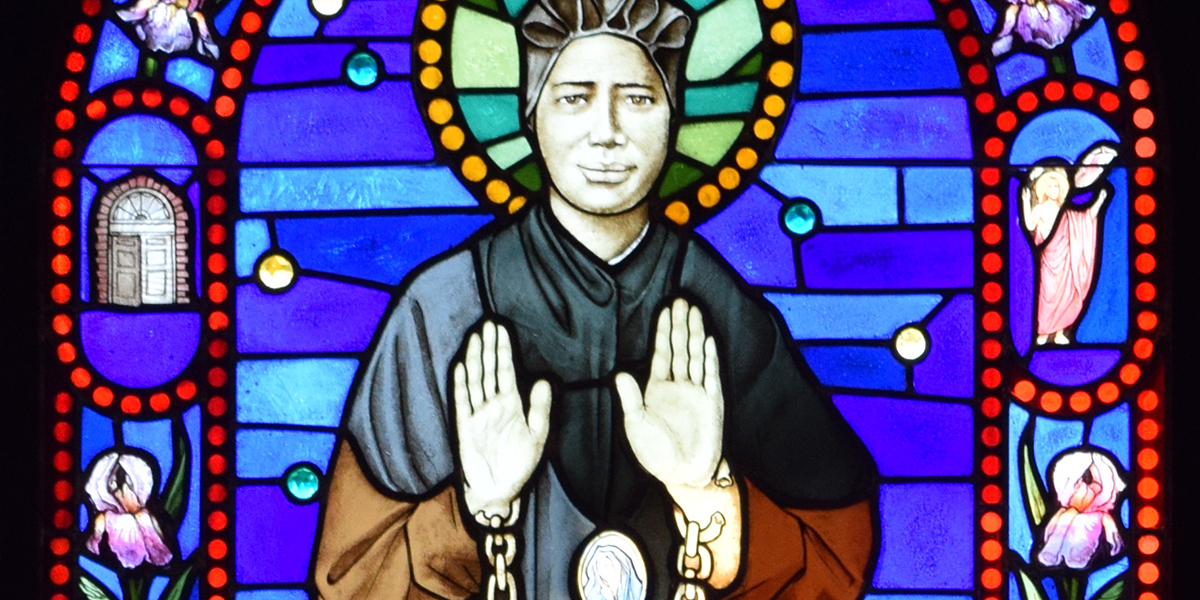
Henriette
Venerable Henriette DeLille was a creole woman, born in New Orleans in 1812. Although she was never a slave, it was the custom for women of color at that time to enter into temporary common-law unions with wealthy white men, essentially to become culturally accepted concubines, until those men were ready to marry women of their own class. Henriette refused, instead founding the Sisters of the Holy Family, who cared for orphans, the elderly, and, illegally, educated slave children. The order is still active in New Orleans to this day.

Read more:
16 Inspiring saints’ names for your baby boy
